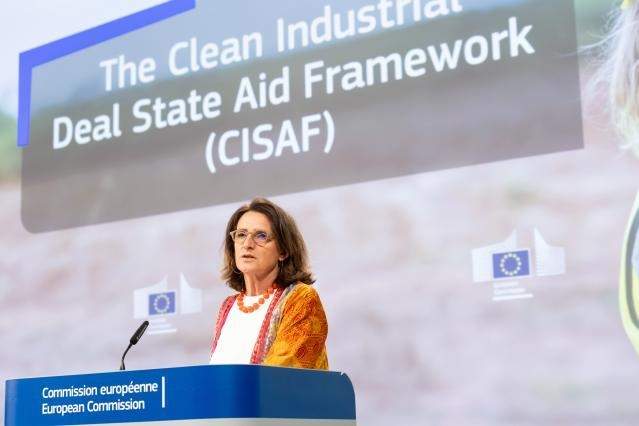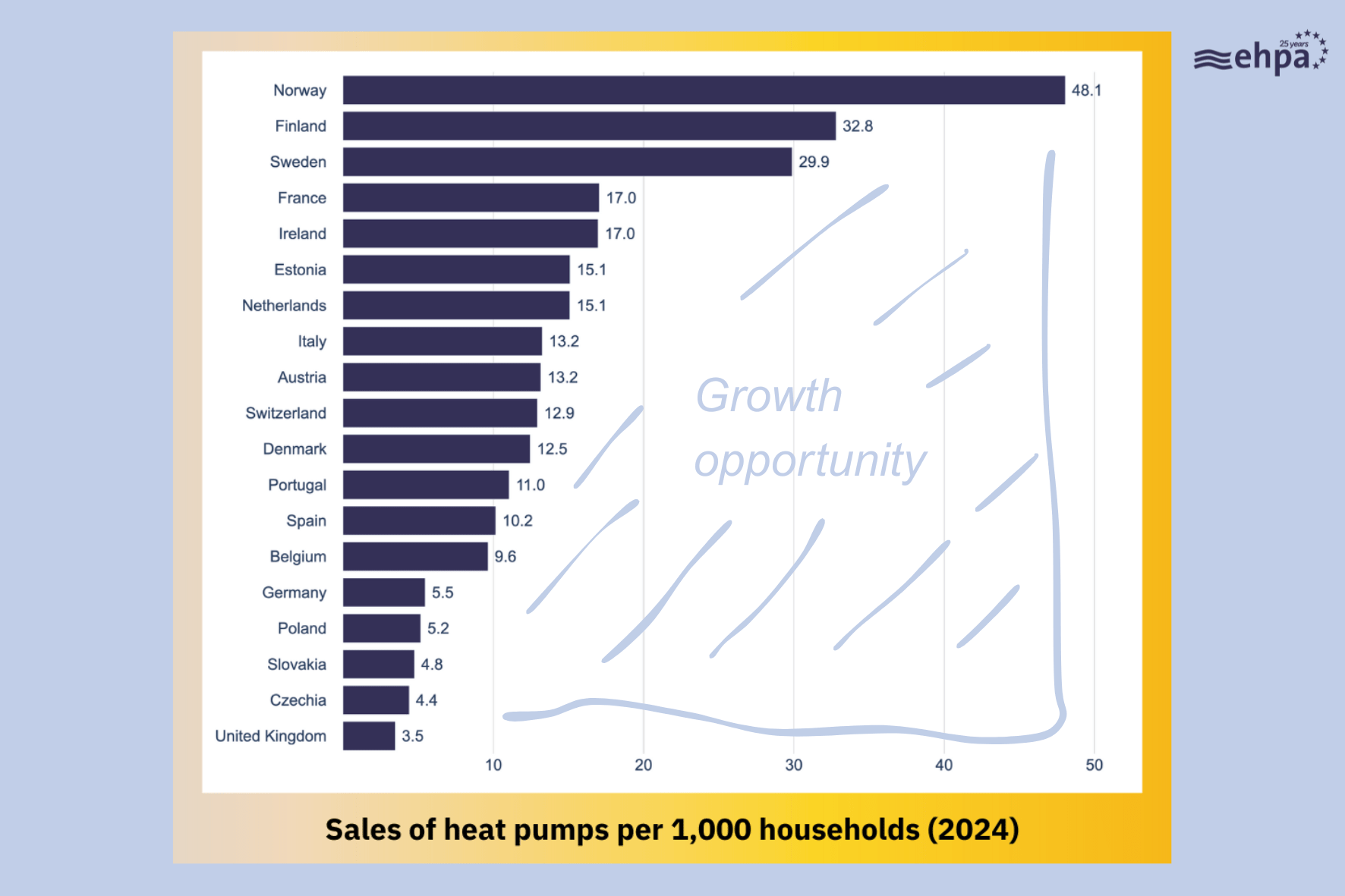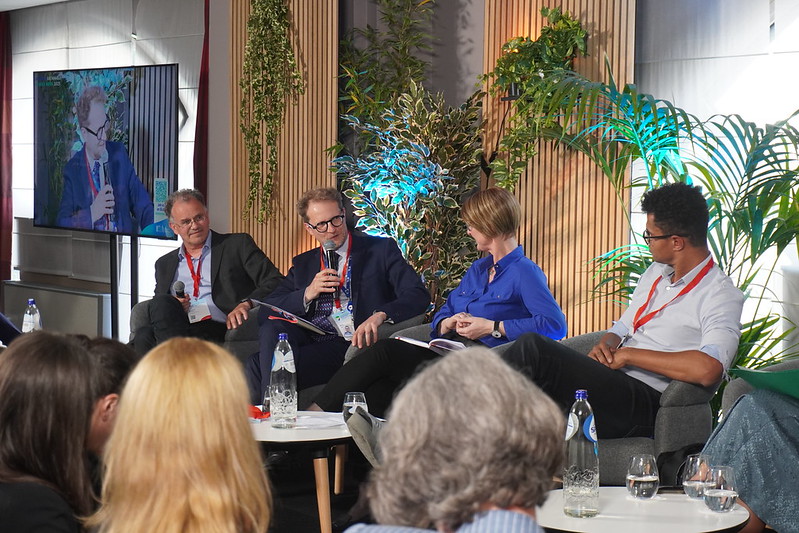Earlier this year the EU agreed on higher renewable energy and energy savings targets for 2030. Decarbonising heating and cooling through heat pumps is crucial to achieving both targets and must be part of local and regional energy planning.
To explore the issue, the EU-funded REDI4HEAT project hosted the webinar “What’s EUp: new European heating and cooling legislation impacting local and regional authorities” on 6 December, where 112 registered participants had the opportunity to exchange on the topic with a panel of experts.
REDI4HEAT is a project supported by the European Heat Pump Association and funded by the EU Life Programme. It aims to support the implementation of the Renewable Energy Directive’s provisions on heating and cooling and assist the Member States in that process with the development of a Knowledge Sharing Platform and toolboxes for public authorities at national, regional and local levels.
This webinar is part of a series of workshops organised by the Fossil-Free Districts & Buildings Hub, a community space led by Energy Cities to strengthen Europe’s energy systems through diversified and locally available renewable energy sources, strong energy public services and innovative energy efficiency programmes.
The online conference presented case studies from Croatia and Greece, but only after giving an overview of the latest updates in the Renewable Energy and Energy Efficiency Directive, first. Presentations were followed by a Q&A session.
The revised Renewable Energy Directive came into effect on 20 November 2023. It raised the EU-binding minimum renewable energy target from 32% to 42.5% by 2030, with the goal of reaching 45%. The majority of the directive’s requirements will be transposed into national legislation over 18 months, with the anticipated deadline of July 2024 for the requirements linked to permitting for renewable energy production.
Regarding heating and cooling, the indicative target has been replaced with a new mandatory increase of renewables in the heating and cooling sector. Member States will have to increase this share annually “by at least 0.,8 percentage points for the period 2021 to 2025 and by at least 1.1 percentage points as an annual average calculated for the period 2026 to 2030” explained Emil Martini, Policy Associate at the European Geothermal Energy Council (EGEC).
“Each EU country will also have 18 months to map the areas in which new renewable energy projects and production sites can be initiated, as part of their national contributions towards the EU’s 2030 renewable energy targets” continued Martini. “This is a great opportunity for Member States to develop local clean energy projects and create local jobs” he concluded.
The updated version of the Energy Efficiency Directive entered into force on 10 October 2023. For the first time, it gives legal status to the ‘energy efficiency first’ principle, recognised as a basic pillar of the EU’s energy policy. In other words, EU countries must consider energy efficiency in all applicable policies and significant investment packages in the energy and non-energy sectors.
As a consequence, national and local authorities must roll out measures and programmes to improve the energy efficiency of their cities, “including the obligation for municipalities above 45,000 inhabitants to draft local heating and cooling plans” highlighted Mélanie Bourgeois, Policy Officer at Energy Cities.
The revised Energy Efficiency Directive also establishes an improved definition of efficient district heating and cooling (DHC) systems, based on updated criteria, which include the percentages of renewable energy, waste heat, and high-efficiency cogeneration that have to be used over various timeframes, continued Bourgeois. All of this can be a “game changer” for the decarbonisation of the heating and cooling sector “if local authorities receive appropriate support” she warned.
Skilling and training public sector employees on the targets and how to adequately plan to achieve them is one of the main challenges ahead. This is why, “the establishment of a legislative and support framework will be crucial to help municipalities develop local heating and cooling plans” Bourgeois said.
She was echoed by Chrysanthi Kiskini, the Director of the Regional Development Fund of Central Macedonia (RDF CM). In her presentation, Kiskini showed how the Greek region is developing renewable energy partnerships at local and international levels. She also gave examples of how cities in Central Macedonia are implementing measures to step up the energy efficiency of their buildings, through retrofitting programmes and the addition of bioclimatic elements in the design of public spaces.
“Municipalities are often understaffed. Capacity-building and knowledge-sharing initiatives are key to bringing citizens and stakeholders on board” said Kiskini.
A virtuous example of public-private partnerships in developing innovative and clean energy systems comes from the city of Karlovac, in Croatia. The project implemented here involves the renovation of a 24-kilometre-long hot water network that will provide clean geothermal energy through the city’s district heating system to its 50,000 inhabitants.
“Ahead of us lie plenty of opportunities for the places we live in, for which we are responsible” commented enthusiastically Vlatko Kovačić Director of GeotermiKA Ltd and Senior Legal Counsel for the City of Karlovac “We believe that together we will make Karlovac a comfortable and energy-independent city. This will be our greatest reward!”.
Good local planning is crucial for the energy transition and can bring huge benefits, provided local authorities receive the right support. Planning should be participatory and bring civil society, governments and investors together.
Watch the recording or download the slides to learn how new renewable energy strategies can be implemented in your city or region.
More on REDI4HEAT.
Cover image: iStockPhoto






